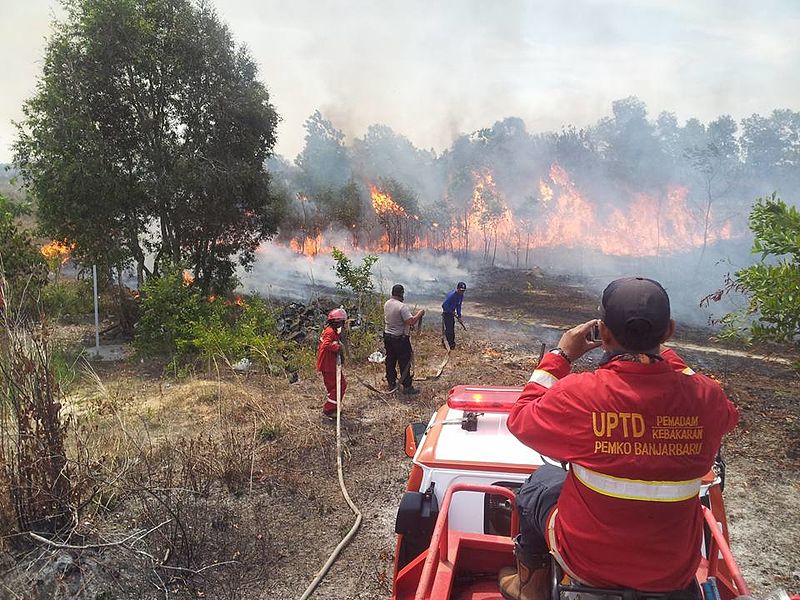Indonesian Wildfires’ Troubling Effects
A gray curtain of smoke, a result of the recent wildfires in Indonesia, is stifling human activity in the country and its neighboring regions. The fires are a byproduct of illegal slash-and-burn farming, used to clear land for palm oil, paper, and rubber plantations. These techniques, combined with unusually dry weather conditions, have led to the worst air pollution conditions this year. On September 11, the National Disaster Management Agency (BNPB) reported that tens of thousands of people have been treated for respiratory illnesses in afflicted Indonesian regions. According to the BNPB statement, “Nearly 15,000 residents in Riau province in Sumatra, near Singapore, suffered from upper respiratory infections, 22,855 residents in South Sumatra and about 40,000 in South Kalimantan.”
In Singapore, poor air quality prompted city officials to close schools and distribute masks to vulnerable individuals. The haze also impacted public events, discouraging people from attending Islamic services and hindering preparations for a traditional Chinese harvest festival.

Air quality in various regions throughout Indonesia has approached levels considered hazardous to health, defined by the Pollutants Standards Index (PSI) as readings exceeding 300. Regional neighbors have begun to express frustration too. As PSI levels in Singapore reached 341 last Friday, the city-state’s Foreign Minister K. Shanmugam stated that Indonesia had shown a “complete disregard for our people, and their own.” Student and activist protests at the Central Kalimantan Governor’s Office last Tuesday further illustrated resentment towards the Indonesian government’s handling of the fires.
Government intervention has been employed on several fronts, as shown by the arrest of seven people whose companies may have contributed to the fires. However, considering that the wildfires in Indonesia are an annual problem repeatedly creating high tensions, many argue that the country may need to reevaluate its current approach and shift its focus to addressing governmental inadequacies and weaknesses in policies.
